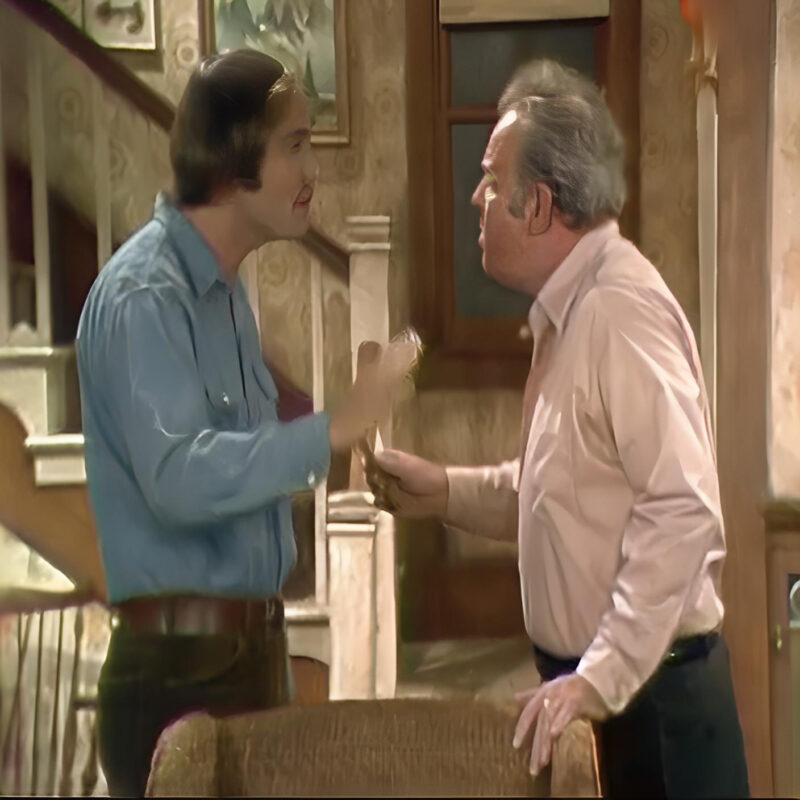
Norman Lear knew exactly what he was diving into with “All in the Family.” From the start, he was cautioned that Americans—particularly white, straight, conservative Americans—would react strongly against a sitcom that tackled hot political issues head-on and refused to sugarcoat the nation’s history of racism and the use of religion to justify bigotry. Skeptics doubted that audiences would appreciate an honest depiction of family life within their homes.
In retrospect, it’s clear that Lear’s doubters had valid reasons for their concerns. Despite being based on the British series “Till Death Us Do Part,” “All in the Family” was unlike anything else on U.S. television when it premiered on CBS in 1971. American sitcom fathers were typically portrayed as upstanding, tolerant members of the community, like Andy Taylor on “The Andy Griffith Show.” They weren’t hypocrites like Archie Bunker (Carroll O’Connor), who justified his prejudices and slandered others. Similarly, sitcoms rarely showed parents and their grown children arguing intensely or engaging in everyday activities like using the toilet or referencing sex with anything other than carefully veiled innuendo.
From its first episode, “Meet the Bunkers,” “All in the Family” set its provocative tone. The episode features Archie and his wife Edith (Jean Stapleton) coming home early from church to find their daughter Gloria (Sally Struthers) and her husband Mike (Rob Reiner), aka “The Meathead,” in a compromising situation. However, it was Archie’s reaction to this scene that sparked the first conflict between Lear and CBS.
Archie’s opening line, “11:30 on a Sunday morning?” was the crux of the dispute. CBS wanted the line removed because they felt it conjured a vivid image in the audience’s mind. Lear explained the controversy to the New York Post in 2021: “The network wanted that line out. Why? Because he’s talking about 11:30 on a Sunday morning and it implants a picture in the audience’s mind. I remember thinking, if the line comes out, I’m going to be in trouble from then on with the silliest things. So that was our first disagreement. I said, ‘If you don’t play that line, I won’t be in tomorrow.’
“It wasn’t until the show went on the air in New York, three hours earlier [than California], and someone from my family called and said that it was [kept] in.”
This was only the beginning of the controversies stirred by “All in the Family.” The show boldly addressed issues such as sexual assault, menopause, infidelity, homophobia, and various forms of discrimination, alongside major real-world events like the Vietnam War and Watergate. The series even earned the ire of President Richard Nixon, who was criticized on the show multiple times.
Despite the controversies, viewers embraced the show. It wasn’t just the humor that drew audiences in; the emotional resolutions to dramatic situations often elicited just as strong a reaction from the live studio audience as the witty banter and comedic exchanges did.
In the end, Norman Lear was right. “All in the Family” resonated deeply with viewers, becoming a groundbreaking series that changed the landscape of American television.
